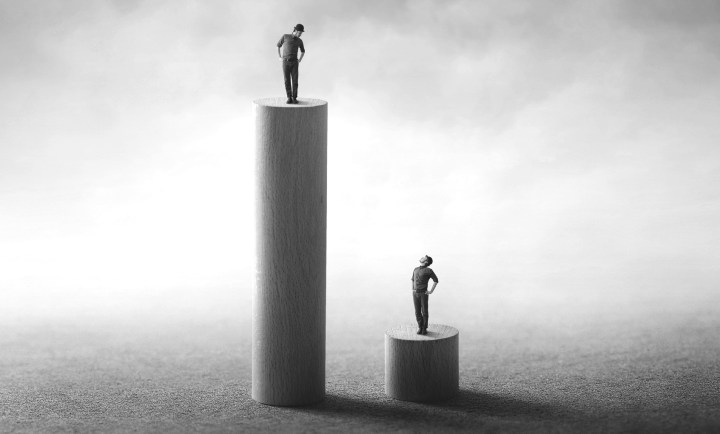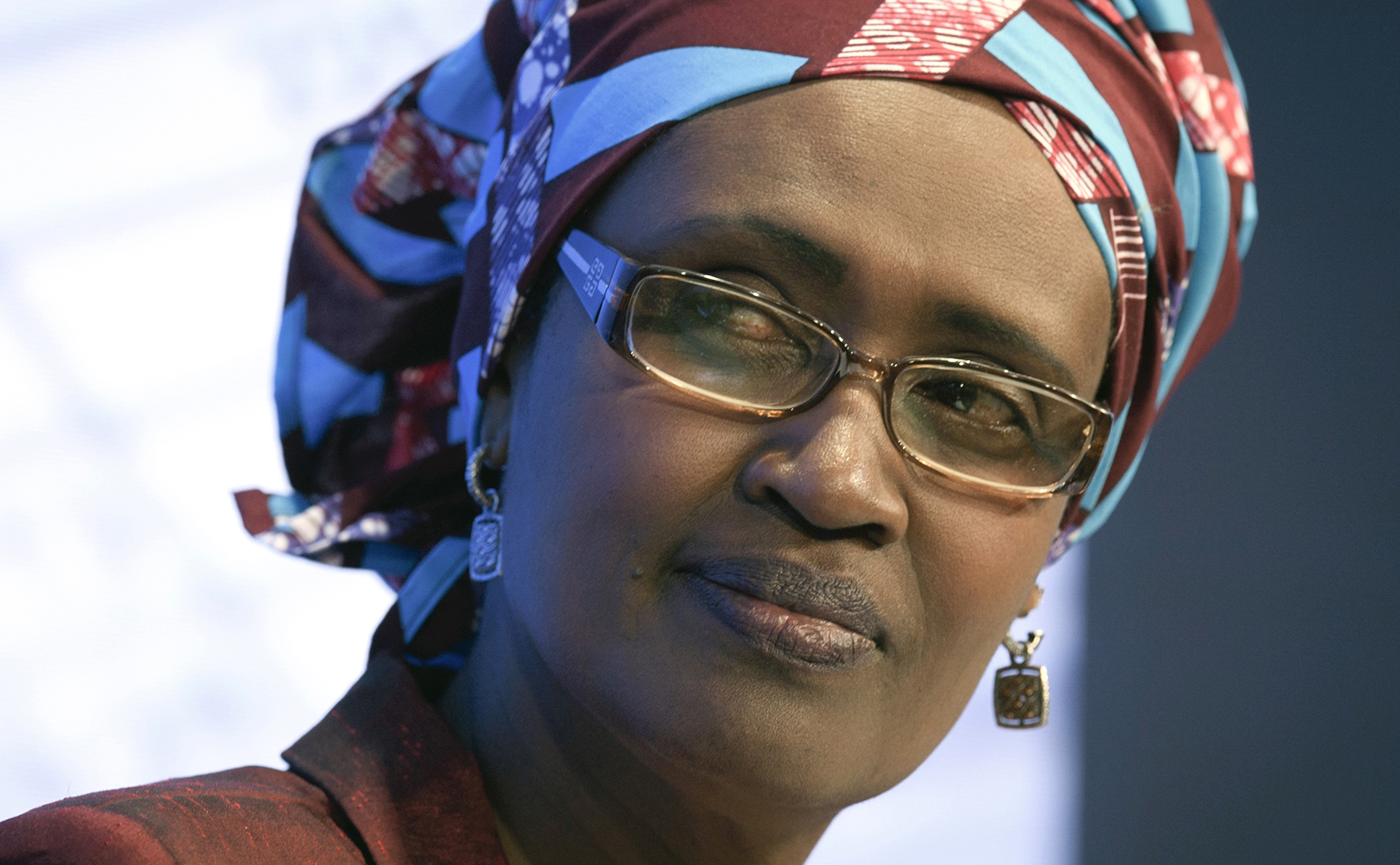BHEKISISA
Why is the International Aids Conference still held in the Global North?

Researchers have found that 96% of global health conferences happen in high- or middle-income countries. Fewer than four in 10 attendees at these gatherings are from poorer nations that have the highest burden of disease.
The world’s largest Aids gathering – the International Aids Society’s biannual International Aids Conference – should never be held in Europe or the US again, says Ayoade Alakija, co-chair of the African Union’s African Vaccine Delivery Alliance, an organisation set up during the Covid-19 pandemic that works towards the equitable delivery of vaccines.
Alakija was speaking in an interview on the first episode of Bhekisisa’s new television show Health Beat.
Most people with HIV live in the Global South, so that’s where the gathering around the most important new HIV research should be held, she says. The Global South is a catch-all term for low- or middle-income nations, usually in Africa, Asia, Oceania, Latin America and the Caribbean.
Researchers who reviewed more than 20 years of global health conferences found that 96% of such events happened in high- or middle-income countries. Fewer than four out of every 10 delegates come from poorer nations – despite the fact that the diseases discussed at such conferences are far more common in Global South countries.
This year, the Aids conference was held in Montreal, Canada, but African delegates struggled to get visas to enter the country – so much so that most of the speakers for the closing session of the conference had to participate virtually.
Even those who had the right documents battled to get to the conference.
Winnie Byanyima, who heads up the Joint United Nations Programme on HIV/Aids (UNAids), was only allowed to board her plane to Canada after airport officials made several calls and “scrutinised [her visa documents] over and over again”.
And the South African activist Tian Johnson spent more than R330,000 on visa applications and flights, but only got as far as the US border before flying back home after he was blocked from boarding a plane to Montreal.
The next gathering will be held in Brisbane, Australia.
The drama follows a slew of slights African researchers faced during the Covid pandemic. In 2021, for instance, South African researchers who identified the Omicron Covid variant were shocked that their transparency was met swiftly with travel bans on South Africa and other African countries, but not on other nations in the Global North where the variant was already circulating.
Alakija spoke to Bhekisisa about what she sees as a dangerous double standard in the world of public health.
- ViiV Healthcare has issued a voluntary licence (so that cheaper, generic versions of the product can be made) for their two-monthly HIV prevention injection cabotegravir. It will take years for generics to be made, but in the meantime they’ll sell the branded medication to 90 countries at a lower price. But history tells us that pharmaceutical companies aren’t transparent about money. What happens now?
“We welcome the fact that they have caved into pressure, because really that’s what it is. It’s a caving-in to pressure which reminds us why we put pressure on the health injustices of this world. But it’s also very blurry; [ViiV Healthcare] said they will provide it at a [lower] price. But how affordable is that price? They’ve given a list of 90 countries that they will make the patent available to through the Medicines Patent Pool, an organisation that works with drug companies to make medicines more affordable. It’s a step in the right direction, but the basic issues around the inequities and the fact that we have to beg, scream and shout for the right to basic healthcare is something we still need to interrogate. “
- Drug companies priced low-income countries (where they trial their medications) out when antiretrovirals first became available. Do you think African governments should do more to negotiate with pharmaceutical companies?
“I absolutely do. It’s not just about negotiating with pharmaceutical companies. I’ve called for this before when high-income countries like the UK and others shut South Africa and others out when [the] Omicron [variant] was first detected.
“African governments need to understand that our lives are at stake. And it is not just about negotiating with pharmaceutical companies, but it is about using our geopolitical power in a way that we become reckoned with. At the moment, the world doesn’t [take us seriously] because we’re not standing up to them. I would say that our leaders need to recognise how important they are, in terms of the wider global quality of nations. We have President [Emmanuel] Macron of France, visiting African countries, because there’s this competition for who Africa is going to lean towards. ”
- You speak about international relations and Africa’s bargaining power and it seems that you think fixing this inequality needs more than just negotiating with big pharma. What needs to change now?
“It is about our wider health security, it is about our wider peace and security. It is about our wider food security. We have a problem of leadership, which is why the world is taking us as people for granted. It is making it look like a life in Abuja is worth less than a life in Alberta, Canada. That shouldn’t be the case. A life in Cape Town should be worth the same as a life in Connecticut. But, at the moment, what the world is telling us with these drugs and the withholding of access to medicines is that our lives are not worth the same. And that is not just on pharma, that is on us. It is on our leadership. Activism will go so far but what we need is political change. “
- If an African president came to you today and said, “I’m meeting with a certain big pharmaceutical company”, how would you advise the president on standing up to the company?
“I would say: Mr President, I would advise you to tell these people who are refusing to purchase or refusing to support our own homegrown pharmaceutical industries that until they do that, we no longer want what you are giving to us, we will find our own procurement mechanisms.
“It is not so much what I say, it is what I do. I think our leadership needs to begin to put their foot down in those geopolitical spaces, be it at the United Nations or the various assemblies that they attend. They make speeches, but they need to start making demands. ”
Read more Aids Conference coverage in Daily Maverick:
“Aids 2022 – Urgent need to engage communities and youngsters as part of HIV response”
“Global discrimination against vulnerable groups fuels new HIV infections”
The charity model [of international relations] no longer works. We need global multilateral partnerships, not global charities that are mostly controlled by men from the high-income countries of the world, who tell us who must live and who must die. It is wrong.
- As you have pointed out, inequality plays out in many ways. Just last week at the Aids conference in Canada, many people from Africa couldn’t attend because of high travel costs or visas being rejected. How does that influence who the world takes seriously when it comes to global pandemics such as HIV or Covid-19?
“I myself have been unable to attend that conference because of the prohibitive cost. I have friends who were denied boarding [after] having paid over $20,000 to get visas and buy tickets so that their voices could be heard. Winnie Byanyima, the executive director of UNAids, who’s from Uganda, was almost denied boarding to attend a conference, which basically is her core business in Canada, because she’s a black woman. Institutional racism is the problem.
“One day we’ll have the conversation about why we are still in a pandemic, because institutional racism meant that when the director-general of the World Health Organization, a man from Ethiopia named Tedros Adhanom Ghebreyesus, declared that we, the world, had a problem and presidents of high-income countries refused to believe him. Therefore, the rest of the world did not take this seriously. What would have happened if Tedros from Ethiopia was Ted from Colorado — would they have taken Covid more seriously? “
- At the 2022 Aids conference, we saw a situation where people from the Global South can be locked out of conversations that are about solutions to the problems they face. How do we avoid a repeat of this?
“What I am calling for is for people to stop hosting these conferences in these places. You cannot talk about us behind our backs. The majority of the burden of the disease is in our countries — largely because you refuse to provide us access to drugs; refuse to provide us access to testing for HIV. There is no point in having these conversations behind closed doors with people from high-income countries who will again decide for us what we must do in our own countries.
“It’s time that our leadership says: “We are not having the conference for Aids in Canada; we’ll have these conferences in the Global South so that we can make decisions together. It is only when this world acts together as one that we’re going to have equity and justice and true health security for the entire planet. “
- Researchers from lower-income countries often help peers from richer countries to do studies on things like new medications, for example. But they don’t get the same recognition as their Global North counterparts. How do we change that?
“We have to shake up this world. It’s not about being upset, because then they will call me an angry black woman. We cannot leave this world to our children. I’m the mother of a girl child who I want to not have to fight the [same battles] that I have fought as a woman. And I don’t want to have to walk into the spaces and have to keep my voice down just so that they will let me stay in the room because they must not feel threatened.
“It is those institutions that have power, who will say to the likes of me, “What do you think about this?” over a phone call, when they have 10 research assistants writing everything that I’ve said down, and then help them to publish it as their own. People are still doing that because I don’t have the time or resources.
“We’re dealing with power cuts, we’re dealing with security issues, so we don’t have the time and space to reimagine this world. What we need is to reimagine the world of global health and the world of global development. We need to think about what equity looks like and have a conversation about institutional racism that says your voice has more value because you’re a man or because you’re Caucasian.” DM/MC
Questions and answers have been edited for length and clarity.
Watch the full interview on Health Beat with Ayoade Alakija:























 Become an Insider
Become an Insider
Comments - Please login in order to comment.